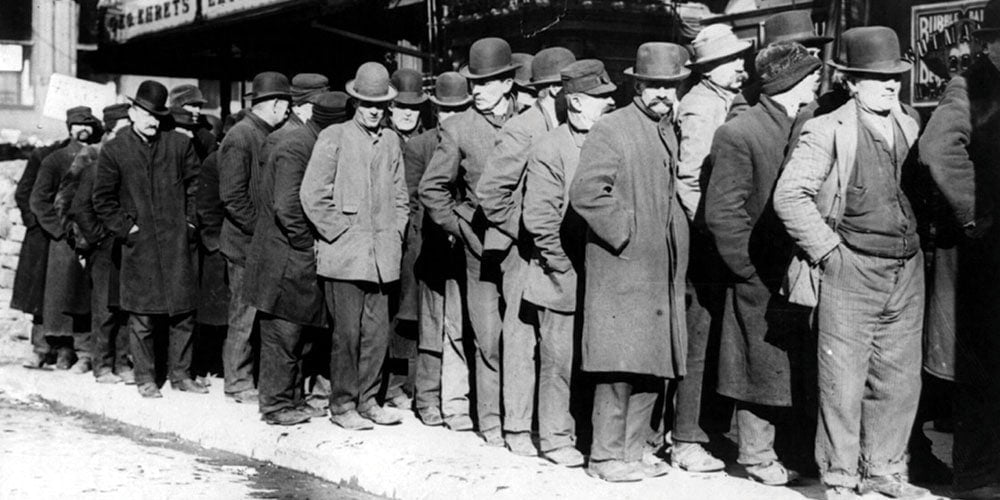
During World War II my parents moved from Wisconsin to Battle Creek, Michigan, where they could educate their growing family of six children in a Seventh-day Adventist school.
Our father ran an elevator and worked as night clerk at Battle Creek Sanitarium. He also kept accounts for Battle Creek Academy as a means of helping to pay for the tuition of the four children already in school. At the same time church members pitched in to help with tuition. When she was in seventh and eighth grade my sister, Beverly, cleaned her classroom after school to help pay tuition.
The country had not fully recovered from the Great Depression when the war came along. Times were tough. Money was tight. With eight mouths to feed, plus all the other needs, Daddy looked for a better-paying job.
He responded to an ad in the local newspaper and became a civilian employee at Fort Custer, employed as general manager of the post exchange (PX). Each company or battalion had a branch PX that offered fewer items than the main PX to make it more convenient for military personnel. Each branch PX kept a small safe in which to keep cash. Part of Daddy’s job as general manager was to change the combinations on the safes once a month (more often if someone had attempted to break in). He was proud of the fact that he knew by heart all the combinations for the month, and set new combinations for the next month.
“Friends,” he said, “that isn’t the way we do things.”
A major problem with the job was that it required him to work on Saturdays. I was very young at the time, maybe 4 years old. But I still remember part of what happened.
Daddy no longer went to church with us. I don’t remember asking why. As young children generally do, I simply accepted it as a fact of life. I was never aware of any friction over the issue, but I’m certain that my parents must have had serious conversations about it behind closed doors.
My mother was a gentle person, very principled, very firm in her position on Sabbath observance. The rest of us continued going to church. We lived about a mile and a half from church, a half mile from the bus stop. Mama didn’t know how to drive, and we had only one car, which Daddy drove to work. But our resourceful mother always managed to get all seven of us to Sabbath School every Sabbath, and we were always on time.
Sometimes neighbors squeezed Mother, Louis, and me into their car. Sometimes we walked the half mile to catch the bus. Durward and Don usually walked the entire distance. Beverly and Joyce usually walked or caught rides with friends. Staying home was not an option as far as Mother was concerned. As far as I know, none of us ever considered that either.
How long we went to church without Daddy, I don’t know. But I do know that it was long enough for church members to take notice. That’s when the drama took place.
During a church board meeting one member brought up the issue of Mr. Wildman, and the fact that he worked every Sabbath. “We need to take his name off the church membership list,” someone recommended. Other heads nodded in agreement.
The young pastor, E. L. Pingenot, possessed insight, wisdom, and tact. “Friends,” he said, “that isn’t the way we do things. Has anyone talked to Brother Wildman about this?”
Silence reigned.
Then the pastor asked, “How many of you have six children to feed, clothe, and educate? How many of you have offered to help the family? Who has offered to help Brother Wildman find a job so that he doesn’t have to work on Sabbaths?” The silence was awkward.
Tom Sprague, a local businessman, finally stood and said, “I’ll offer him a job.”
Thus ended the discussion about dropping Mr. Wildman from church membership. But that isn’t the end of the story.
Tom hired our father to work in his accounting office. The business grew, and eventually the two men operated their two businesses out of the same office space.
Daddy returned to church and was a faithful Sabbathkeeper the rest of his life. He became a church elder. He chaired the Battle Creek Academy school board when a new school was built following a fire that destroyed the old one. Another child, Gordon, was born into our family, and all seven of us graduated from Battle Creek Academy and attended Emmanuel Missionary College (now Andrews University). Christian education was a priority in the Wildman family.
Questions often come to mind. What would have happened if the church board had summarily dropped my father’s name without redemptive action? What would have happened if Tom Sprague had not been willing to reach out to help a brother in need? Would our parents have continued to send us to Adventist schools? Would I still be a Seventh-day Adventist?
Details of this story were told to me after Tom and Pearl Sprague died. I have often wished I had known the story while they were still alive. I have wished I could simply say, “Thank you, Pastor Pingenot! Thank you, Tom!”
Janet Wildman Schlunt is retired after serving the church in four world divisions. She lives in Terre Haute, Indiana.
Beverly Wildman Noble served the church as a Bible worker, office assistant, and academy registrar. She lives in Scottsdale, Arizona.